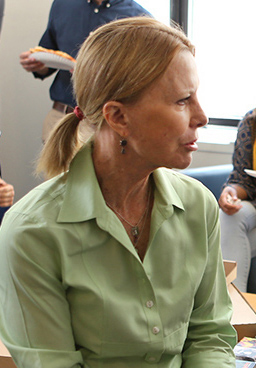Michael is nervous about attending college as a freshman in the fall. And his parents are even more anxious. Michael has been accepted to a private university in New York and this will be his first time away from home and his parents.

Typical college freshman scenario, right? Except Michael is a student on the autism spectrum. Successfully completing a college degree can be a challenge for any individual, but especially for those on the spectrum.
Autism is a developmental disorder that affects one in 68 people. It impairs the ability of individuals to communicate and interact with others. This can make college life challenging for students with autism.
Living in college residence halls, participating in classes and study groups and eating meals at the cafeteria are all part of college life and all a bit more challenging when on the spectrum.
So what solutions are available for students on the spectrum? Research has shown that these students thrive when they received increased support to assist them with navigating the college experience.
April is autism awareness month and in the past decade an increase in awareness has led to earlier diagnosis, which has resulted in children who are better prepared as they enter adulthood. As a result, many students with high-functioning autism are seeking postsecondary education at colleges and universities nationwide.
Current statistics indicate that each year applications of students with autism spectrum disorder (ASD) to post-secondary education will increase by approximately 20,000. It is therefore, imperative that institutions of higher learning prepare to accept, support and include students with ASD into their courses and classrooms.
More and more colleges and universities are offering support for students with disabilities, including those with ASD. It is important to note that the amount of support differs greatly and parents, high school counselors and students should research each to make sure that the supports offered meet the individual needs of the prospective student.
At Pace University, OASIS (ongoing academic, social, instructional, and support) is a comprehensive college support program for students on the autism spectrum. Located in the TARA Center (Teach and Research in Autism), the program is founded on researched findings focused on essential supports necessary for success in postsecondary education and independence.
Students entering the program are required to submit recent neuropsychological assessments to assure that their individual strengths are recognized and their needs met. To guarantee that all accommodations ”” from extended time for testing to note-taking services ”” be afforded, the assessment is shared with the office of disability services responsible for implementation of all accommodations.
All students in the program are admitted by university standards, but receive the tools they need for success. That includes individual coaching, social skills training and inclusion with college students, instructional assistance, enhanced communication with professors, emotional support through individual and group sessions with a trained licensed social worker, housing support, weekly social activities, employment readiness workshops, and assistance with finding internships and employment following graduation.
The OASIS program provides a quiet place on campus for individual coaching, study cubicles, lounges for social interaction and support for individual needs. Each student is assigned a coach and works one-on-one with that coach at least four hours weekly. Executive functioning skills are focused on to help the student with time management, organization, planning and communication to adhere to the standard of course work expected from all Pace students.
The OASIS program at Pace was started in 2008 with four students. There are currently 40 students participating and the program has helped more than 100 students.
Recognizing the statistics for noncompletion and/or graduation for students on the spectrum (80 percent), the OASIS program boasts a 77 percent completion and graduation rate. Following the same pattern for employment following postsecondary completion, the program has focused upon those skills necessary for success in
the workplace.
All junior and senior students receiving support from OASIS attend weekly employment ready workshops focused on skills necessary for success after employment. Résumé and cover letters are perfected and mock interviews provide practice and feedback to build better potential for employment. All attendees in the workshops acquire paid summer internships, preparing them for independence after graduation.
While this is a new initiative of the program, we are already seeing results and are determined to prove how students with ASD and other learning differences contribute to the community and society.
It is becoming increasingly gratifying to see program graduates achieve success in their personal and professional lives. Many have been able to gradually transition from dependence to independence and are succeeding in the workplace. Some have become spokespeople for the program and role models on the possibilities of what can be accomplished.
Janet D. Mulvey is director of the OASIS program at Pace University for the past three years and a professor in the school of education. She can be reached at jmulvey@pace.edu.





















